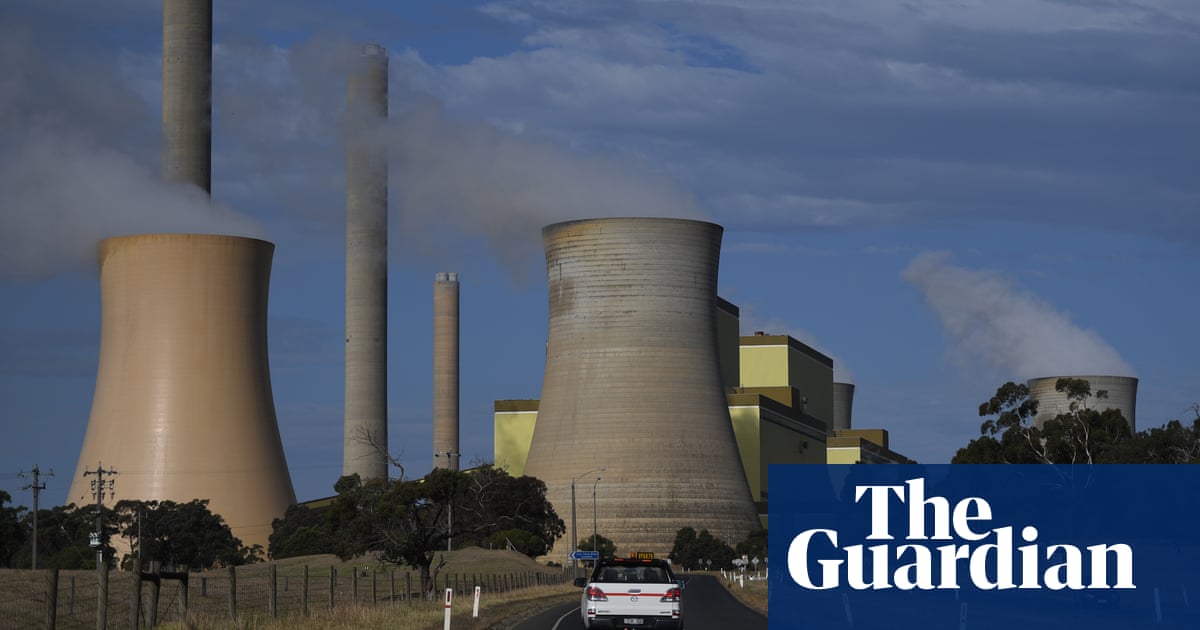Peter Dutton’s claim that nuclear energy would lead to cheaper power bills has been rejected by energy experts, with one saying there was “no credible reason” to think adding “the most expensive form of bulk electricity” would cut prices.
They said a range of evidence, including a recent CSIRO analysis, suggested nuclear power would be more expensive than other options, and that the solar and wind system under construction – supported by firming technology – was the cheapest option.
The opposition leader on Wednesday revealed the site of seven proposed nuclear power plants that he said would be built and owned by the commonwealth under the Coalition.
Dutton did not provide evidence of how much the plants would cost, explain how the Coalition would lift legislated federal and state bans on nuclear power, or say why the Coalition believed the first two plants could be online by 2035 or 2037 – a much faster timeframe than experts say would be possible.
He said nuclear energy would lead to “cheaper, cleaner and consistent electricity” than Australians had under the Albanese government, and its commitment for 82% of generation to come from renewable sources by 2030.
Dr Dylan McConnell, an energy systems researcher at the University of New South Wales, said there was “no credible reason to think that adding the most expensive bulk form of electricity would make electricity prices go down”.
With a majority of the country’s coal-fired power plants due to close over the next decade, Dutton said that the Coalition would use less renewable energy and instead support new gas-fired power, a fossil fuel, to ensure the electricity grid remained reliable until nuclear plants were online.
But McConnell said gas power was also a significantly more expensive form of electricity in the national grid than solar and wind, and using more of it than needed would push up prices. “Gas is not cheap. It’s a huge cost,” he said.
The Grattan Institute’s energy and climate change program director, Tony Wood, said the Coalition had not backed up its claim that nuclear generation would be a cheaper option. “There’s nothing in what we’ve seen so far that would substantiate the claims that it’s going to be a certain price at a certain time,” he said.
Wood rejected the Coalition’s claim that electricity was expensive today due to Labor’s renewable energy policies. “It’s not true,” he said.
He said electricity prices leapt 20% last year due to Russia’s assault on Ukraine pushing up fossil fuel prices, a lack of available gas, old coal plants having unscheduled outages and extreme weather leading to some coalmines being flooded. He said they had since started to come back down.
Wood said the Coalition’s climate policy would probably lead to it having to pay coal-fired power plants to stay open longer than planned, a step already being taken by the New South Wales and Victorian governments, and that relying on gas power would be “more likely to lead to more expensive electricity”.
after newsletter promotion
McConnell said claims by the Coalition that nuclear power had led to lower prices in other jurisdictions – including Canada and France – were misleading, and irrelevant to the costs that would be faced in Australia. He said both had established nuclear industries decades ago, but the cost of wholesale electricity from nuclear generation in Ontario was still higher than the wholesale cost in some Australian states from new, firmed renewable energy.
McConnell said it was “extremely dubious” that nuclear plants could be built in Australia before 2040, as the Coalition claimed. “Nuclear is just not able to address the things we need to do in the electricity sector in the timeframes they need to be addressed,” he said.
Wood said this particularly applied to the Coalition’s plan to potentially use small modular nuclear reactors, a technology that is not yet proven commercially viable, in South Australia and Western Australia by 2035. “The timeframe there seems remarkable,” he said.
The Coalition wants to build the plants on the site of existing or past coal-fired plants at Tarong and Callide in Queensland, Mount Piper and Liddell in New South Wales, Collie in Western Australia, Loy Yang in Victoria, and near Port Augusta in South Australia.
The advocacy group Solutions for Climate Australia said the Coalition’s nuclear proposal was a “fantasy”. The group’s director, Dr Barry Traill, said its analysis found the Coalition’s approach would lead to at least 2.3bn tonnes of heat-trapping carbon dioxide being pumped into the atmosphere as the country used more fossil fuels and less renewable energy in the decades ahead.
“We can’t afford to wait,” he said. “Action this decade is critical.”

